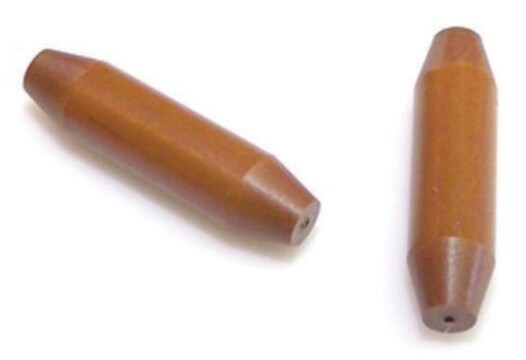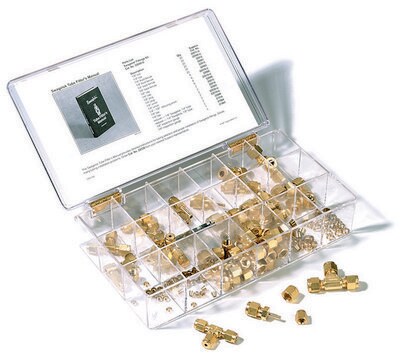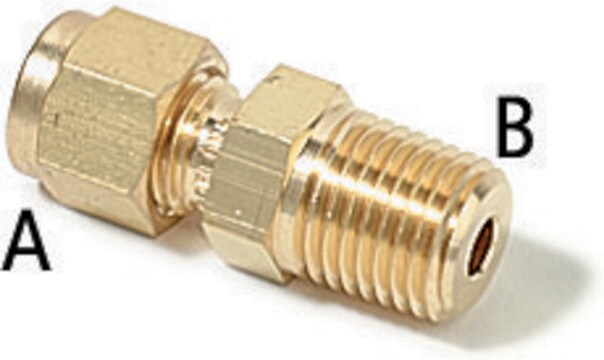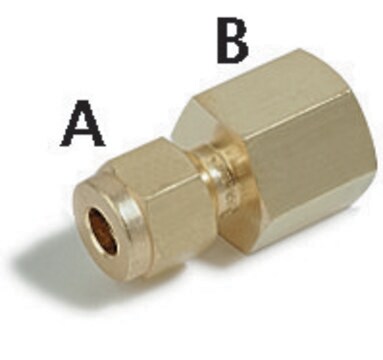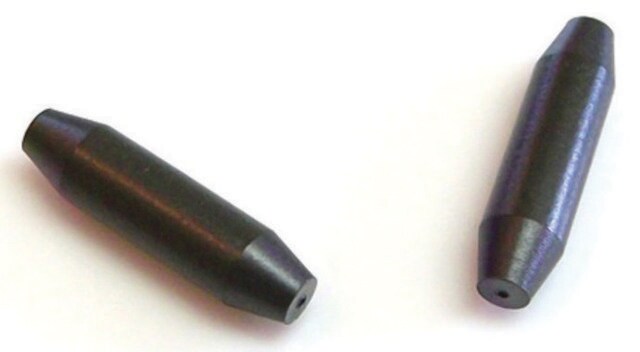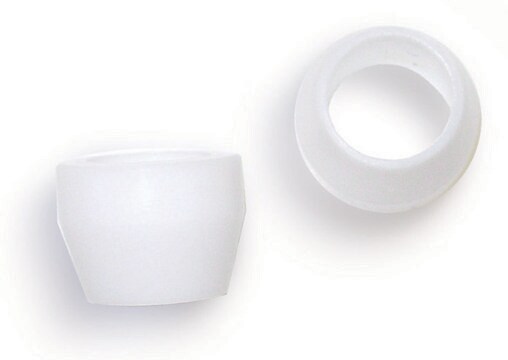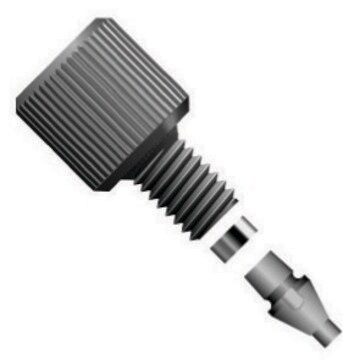23796
Capillary Column Butt Connector
I.D. 0.4 mm, Supeltex M-2 ferrule included
Iniciar sesiónpara Ver la Fijación de precios por contrato y de la organización
About This Item
Código UNSPSC:
41115700
Productos recomendados
envase
pkg of 1 ea
técnicas
gas chromatography (GC): suitable
D.I.
0.4 mm
¿Está buscando productos similares? Visita Guía de comparación de productos
Descripción general
Capillary column butt connector is made by inserting two capillaries into a piece of PTFE shrinking tubing, which when heat is applied secures the two capillaries in place. It has shown to have no contribution to band spreading.
This device consists of a double-tapered ferrule and a stainless steel compression body with a threaded nut. Small (2.3 cm x 0.6 cm) and light (4.4 g with ferrule), it provides a gas tight seal without a change in column efficiency or inertness. The columns to be connected can have the same or different internal and external diameters. The butt connection is made inside the special double-tapered ferrule. The ferrule is then compressed within the housing. When the column ends are butted squarely and tightly together, the butt connector will not alter the chromatographic performance of your capillary columns. There is little or no dead volume and little chance of gas flow disruption by following these steps:
- Make sure the bore of the ferrule is clean. Blow out any ferrule fragments with nitrogen. Using a magnifier, examine the column ends to be connected. Make sure each cut is clean and square. The two ends must butt squarely, without any gaps.
- With white typewriter correction fluid, place a reference mark 1/4 inch from the end of the column with the larger bore. This mark will help you to confirm visually that the end of the column is centered within the 1/2 inch ferrule.
- Place the ferrule inside the housing and loosely tighten the nut. Feed the unmarked column completely through the ferrule and out the opposite end. Cut off ~1 inch (25 mm) of the column to ensure no ferrule fragments are in the column. Draw the column back far enough to insert the marked column into the ferrule to the indicating mark. Tighten the nut about 1/8 turn past fingertight.
- Press the ends of the columns together, observing the reference mark to make certain they butt together at the center of the ferrule. Tighten the ferrule to about 1/4-1/2 turn past fingertight. Gently pull on both columns to ensure they are secure. If they are loose, additional tightening is necessary.
Otras notas
We offer a variety of chromatography accessories including analytical syringes
Elija entre una de las versiones más recientes:
Certificados de análisis (COA)
Lot/Batch Number
Lo sentimos, en este momento no disponemos de COAs para este producto en línea.
Si necesita más asistencia, póngase en contacto con Atención al cliente
¿Ya tiene este producto?
Encuentre la documentación para los productos que ha comprado recientemente en la Biblioteca de documentos.
Packed Bed Column.
Deyl SZ
Capillary Electrophoresis: Theory and Practice, 113-114 (2001)
Nuestro equipo de científicos tiene experiencia en todas las áreas de investigación: Ciencias de la vida, Ciencia de los materiales, Síntesis química, Cromatografía, Analítica y muchas otras.
Póngase en contacto con el Servicio técnico
